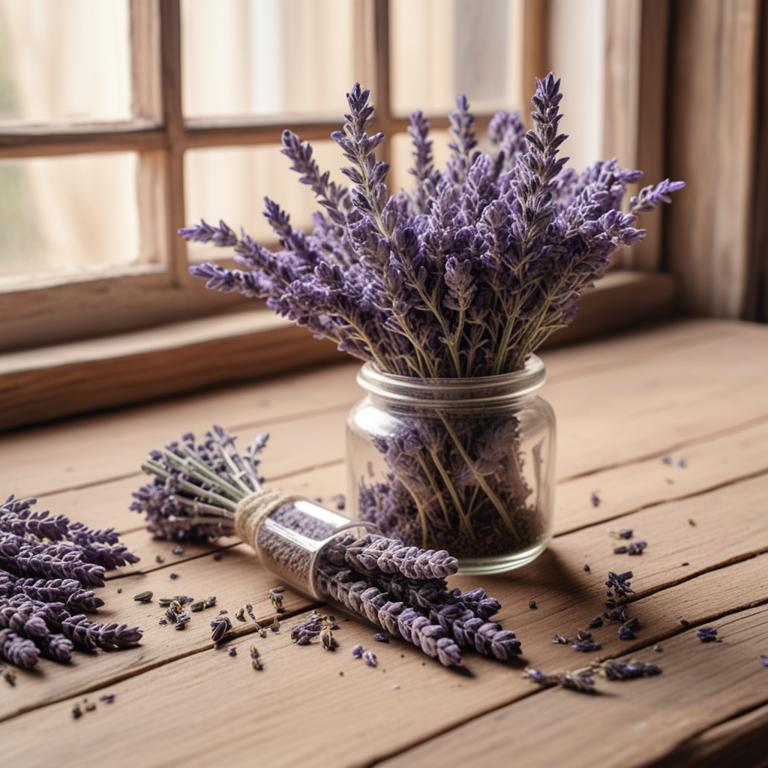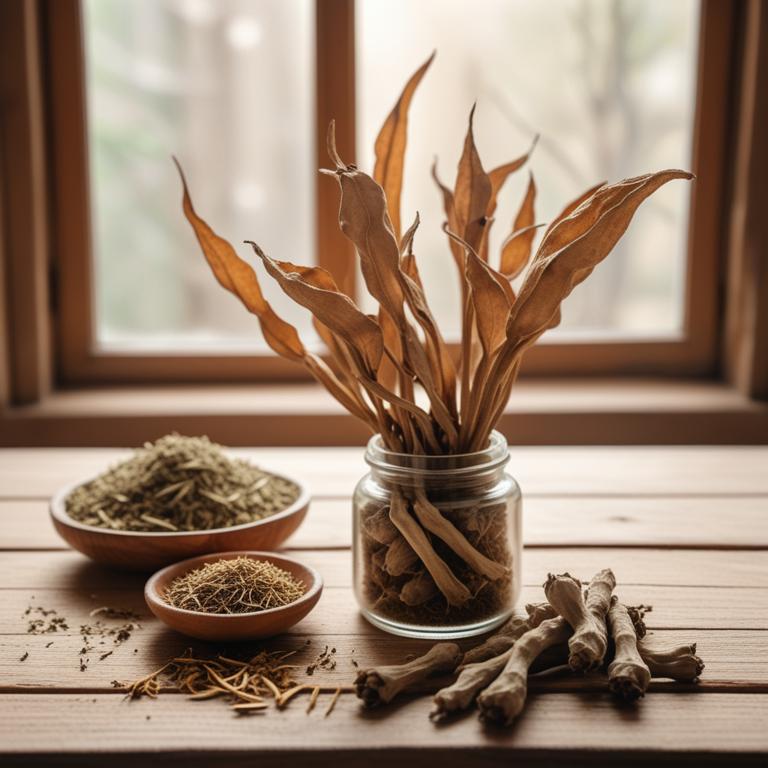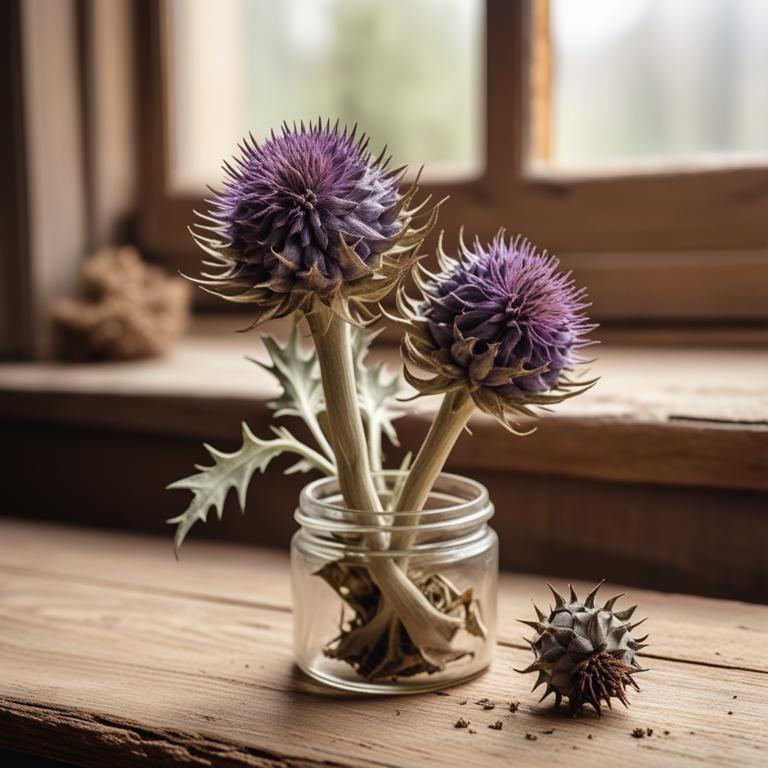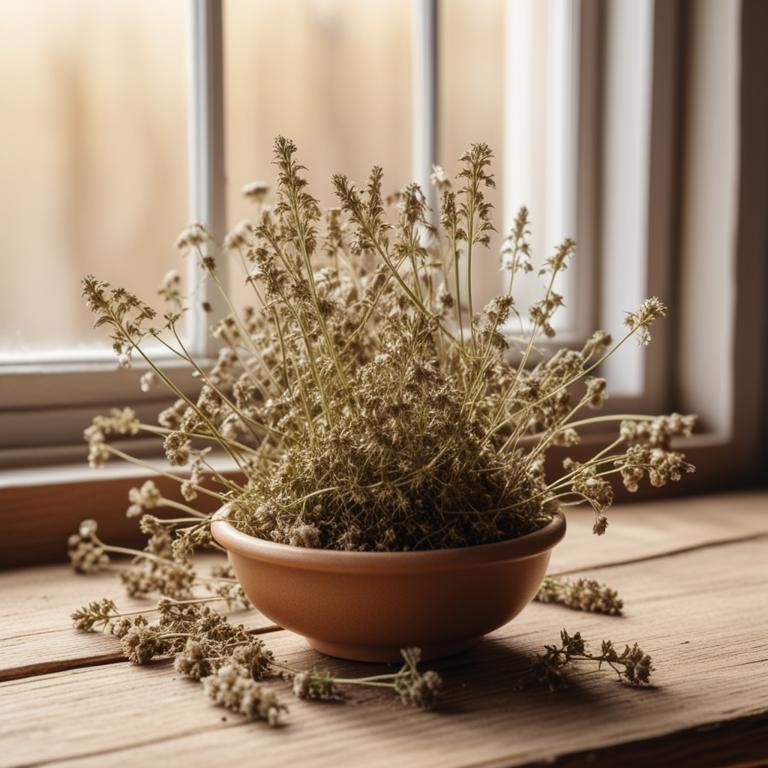Updated: Dec 1, 2024
The Jellyfish Sting: Understanding Its Causes and Natural Remedies

A jellyfish sting can be a painful and irritating experience, causing redness, swelling, and stinging sensations on the skin.
It occurs when a jellyfish's stinging cells, called nematocysts, come into contact with human skin, usually when swimming or wading in areas where jellyfish are present. Jellyfish stings can range from mild to severe, depending on the type of jellyfish and the individual's sensitivity. To alleviate the discomfort of a jellyfish sting, herbal remedies can be a natural and effective approach. Plants like aloe vera and tea tree oil have anti-inflammatory and antiseptic properties that can help soothe and calm the affected area.
The cooling properties of aloe vera can reduce redness and swelling, while the antiseptic properties of tea tree oil can prevent infection. Herbal teas, such as those made from the leaves of the plant Hypericum perforatum (St. John's Wort), can also be used to treat jellyfish stings. These teas have anti-inflammatory properties that can help reduce pain and swelling. Some herbalists also recommend applying a poultice made from the leaves of the plant Plantago lanceolata (ribwort plantain) directly to the affected area to help draw out the venom and reduce inflammation. It's worth noting that while herbal remedies can be helpful in alleviating the symptoms of a jellyfish sting, they may not completely eliminate the pain and discomfort.
If the sting is severe or accompanied by other symptoms such as difficulty breathing or rapid heartbeat, medical attention should be sought immediately.
Table of Contents
What leads to jellyfish sting?
The main causes of jellyfish sting are related to the unique biological features of these marine animals.
Nematocyst discharge is a key factor - it's a tiny, thread-like structure inside the jellyfish's cells that fires out when it comes into contact with something. When a jellyfish tentacle brushes against a human, the nematocysts discharge, releasing a venom that causes the sting. Coelenterate envenomation is another cause - coelenterates are the scientific name for jellyfish, and envenomation refers to the release of venom. When a jellyfish stings, it injects venom into the wound, causing pain and other symptoms. Stinging cells, also known as cnidocytes, are specialized cells that contain nematocysts.
When these cells are stimulated, they release their nematocysts, causing the venom to be discharged. Venom injection is a direct result of the stinging cells releasing their nematocysts. The venom is injected into the wound, causing the sting. Cnidarian sting refers to the sting itself, caused by the coelenterate envenomation. Cnidarians are a group of animals that include jellyfish, corals, and sea anemones.
Jellyfish tentacle contact is the initial cause of the sting - when a human comes into contact with a jellyfish's tentacles, it can trigger the nematocyst discharge and subsequent envenomation.
What are the benefits of using herbs for treating jellyfish sting?
Using herbs to treat jellyfish stings can be very helpful.
One of the main benefits is that they can help reduce pain and discomfort. These herbs have anti-inflammatory properties, which means they can reduce swelling and redness caused by the sting. This can make you feel better and improve your ability to move around.
Some herbs can also help neutralize the venom from the jellyfish, which can slow down the healing process. This can prevent further irritation and make the healing process easier. Additionally, some of these herbs have antimicrobial properties, which can help prevent infection in the affected area. This is especially important when you have an open wound from the sting.
By using these herbs, you can promote healing and reduce the risk of complications.
What are the primary medicinal ingredients for jellyfish sting?
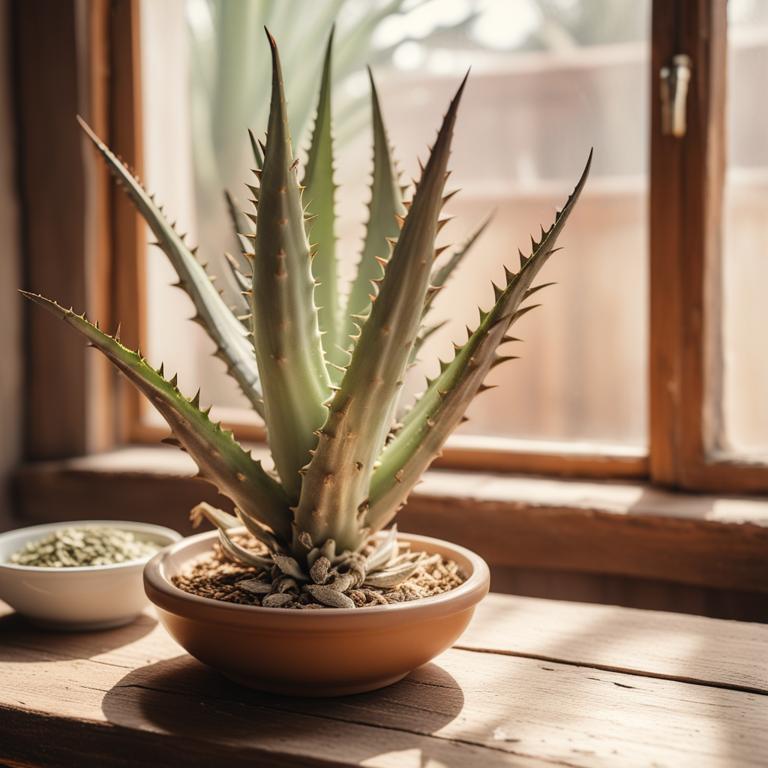
When you get stung by a jellyfish, the pain can be unbearable.
But there are some herbs that can help ease the discomfort. Aloe barbadensis, also known as aloe vera, has anti-inflammatory properties that can reduce swelling and pain. When applied topically, its gel can soothe the affected area and help calm the skin. Another herb that can be beneficial is Zingiber officinale, or ginger. It has natural pain-relieving properties that can help alleviate the pain caused by a jellyfish sting. You can apply ginger paste or powder to the affected area to get relief. Calendula officinalis, or marigold, is also known for its healing properties. Its antiseptic and anti-inflammatory properties can help prevent infection and reduce pain. Calendula can be applied as a cream or oil to the affected area to get relief.
Cassia auriculata, or Indian laburnum, is a herb that has been used for centuries to treat various skin issues. Its anti-inflammatory and antiseptic properties can help reduce pain and prevent infection. When applied topically, Cassia auriculata can help soothe the skin and promote healing. Sesuvium portulacastrum, or portulaca, is another herb that can be beneficial for jellyfish sting. Its antiseptic and anti-inflammatory properties can help prevent infection and reduce pain. When applied topically, Sesuvium portulacastrum can help promote healing and reduce discomfort. To use these herbs, simply crush or grind them into a paste, and apply it to the affected area. You can also mix them with a little water to create a soothing paste. Always do a patch test before applying any new herb to ensure you're not allergic to it.
Remember to clean and rinse the affected area before applying the herb paste.
What herbal preparations are used to treat jellyfish sting?

Herbal preparations can be good for jellyfish stings because they have anti-inflammatory and soothing properties that can help calm the affected area.
One option is herbal tea, made by steeping dried herbs like lavender or chamomile in hot water. These herbs have anti-inflammatory properties that can help reduce swelling and ease pain. Another option is decoction, which involves boiling herbs like dandelion or plantain in water to release their active compounds. Decoction can help draw out venom and reduce inflammation.
Infusion is a similar method to tea, where herbs like calendula or aloe vera are steeped in hot water to release their soothing properties. Infusion can help calm the skin and reduce redness. In addition to these liquid preparations, herbal creams and salves can also be used to treat jellyfish stings. Creams and salves made from herbs like arnica or comfrey can be applied directly to the affected area to provide relief from pain and inflammation. These herbal preparations can be more gentle on the skin than some other treatments, and may be a good option for people who want to avoid harsh chemicals.
However, it's always a good idea to do a patch test before using any new herbal remedy, and to consult with a medical professional if the sting is severe or doesn't improve with treatment.
Additional Resources:
What herbs are not recommended for use if you have a jellyfish sting?
If you've been stung by a jellyfish, it's essential to be cautious with the herbs you use to treat the pain.
Plantago lanceolata, also known as ribwort, can cause skin irritation and make the sting worse. Euphorbia peplus, or petty spurge, contains a toxic sap that can burn your skin and make the sting even more painful. Glycyrrhiza glabra, licorice root, may seem harmless, but it can increase the risk of swelling and allergic reactions.
Arnica montana, a popular herbal remedy, can be too harsh for jellyfish stings and may cause more inflammation. Tithonia diversifolia, a plant native to Central America, contains thorns and can cause further skin damage and even infection if not handled carefully. When treating a jellyfish sting, it's best to stick to gentle, soothing remedies like cool water, baking soda, or topical creams.
Avoid using herbs that can irritate the skin or make the sting worse.
FAQ
Are there any specific herbs that can prevent jellyfish sting?
Some people use vinegar to help alleviate jellyfish stings, but there's another option.
Turmeric has anti-inflammatory properties that might help reduce the pain and swelling caused by jellyfish stings.
And mint, with its cooling effect, can help ease the discomfort.
Is it safe to use herbal remedies for jellyfish sting during pregnancy?
It's generally not recommended to use herbal remedies for jellyfish stings during pregnancy.
Some herbal treatments, like those containing stinging nettle, can stimulate the uterus and cause complications. It's also hard to know the exact potency and purity of herbal remedies.
Stick to first aid treatments that are specifically designed for jellyfish stings and are safe to use during pregnancy.
Are there any herbs that can reduce the frequency of jellyfish sting?
Some herbs, like mint and chamomile, have been found to help reduce the pain and discomfort from jellyfish stings.
Their anti-inflammatory properties may help soothe the affected skin.
While their effectiveness can vary, these herbs have been used in traditional remedies for centuries to alleviate sting symptoms.
Related Articles

Causes, Herbal Solutions, and Preparations for Mouth Ulcers

Acne Remedies: Causes, Medicinal Herbs, and Natural Herbal Preparations

Chickenpox: Causes, Medicinal Herbs, and Natural Cures

Glowing Skin: Causes, Medicinal Herbs, and Effective Herbal Remedies

The Jellyfish Sting: Understanding Its Causes and Natural Remedies
